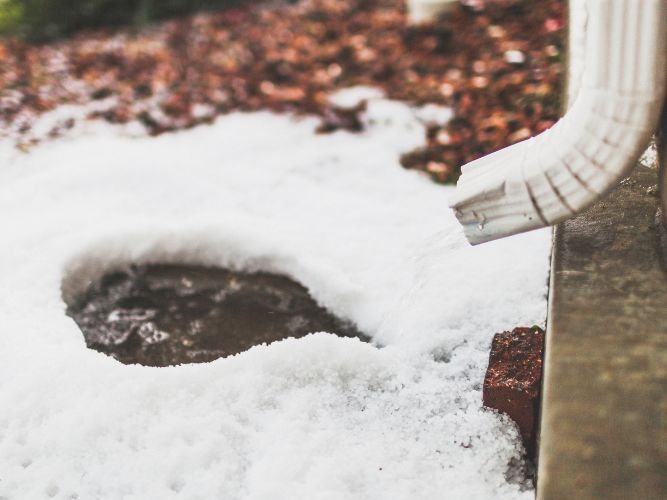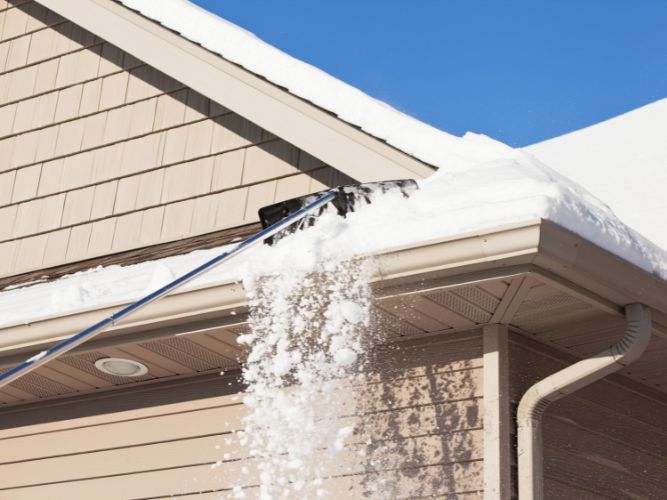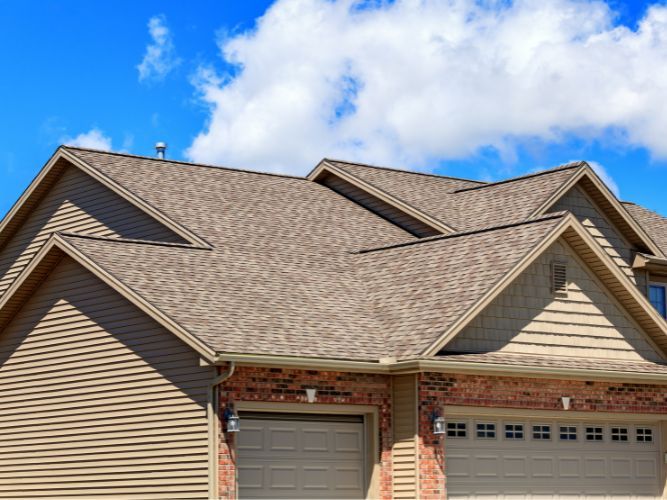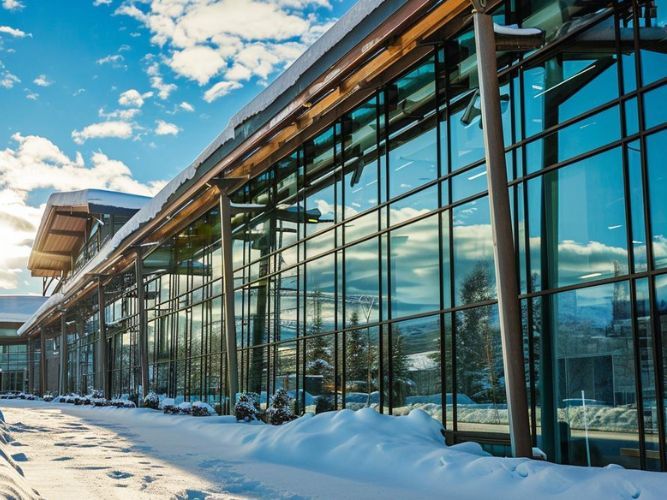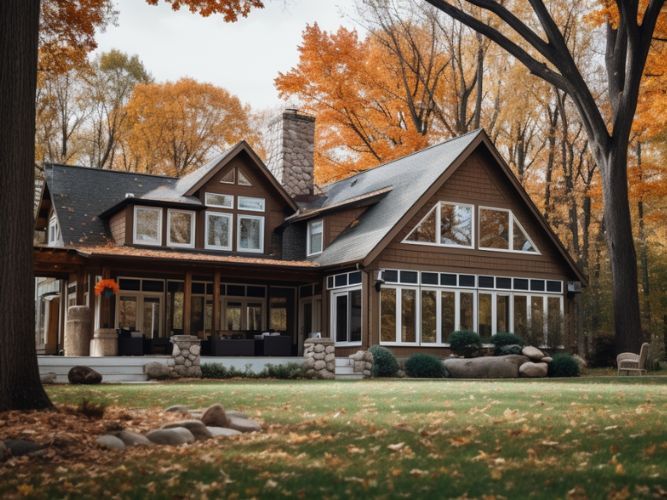Why Proper Siding Installation Matters: Benefits and Drawbacks
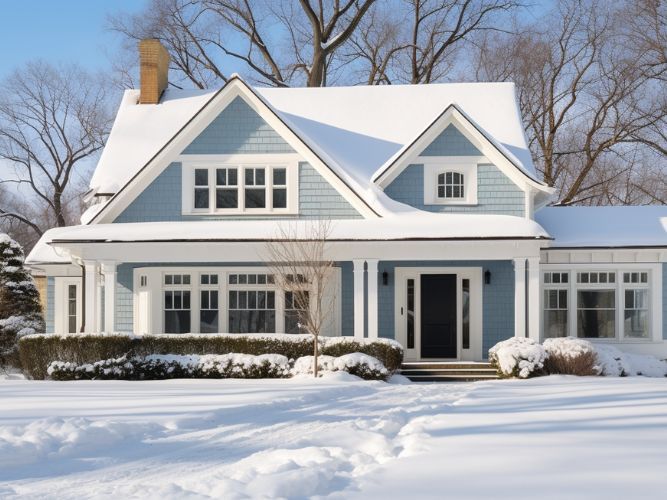
Siding is an important part of any home that provides durability, insulation, and aesthetic appeal, so learning the importance of correct siding installation and understanding the advantages of having it professionally installed can help your home look and last for years to come. Knowing the potential issues with improper siding installation and choosing the right siding material and installer enhance the lifetime of your home and help you to save money in the long run.
The Importance of Correct Siding Installation
The correct installation of siding is an important step in maintaining the integrity of a home or commercial building. Siding serves as a layer of protection from the elements and helps ensure the insulating properties of the structure remain intact. Taking the necessary precautions to ensure the siding is correctly installed is an important step to maintain the structure’s condition.
However, there are several factors to consider when installing siding, including drainage, ventilation, and energy efficiency. The siding should provide an adequate amount of drainage while also allowing for ventilation in order to reduce moisture build-up. Additionally, insulation should be added for enough protection against the outside climate.
In addition, the most common siding materials used for installation are vinyl, wood, fiber cement, and stucco. Each material has its own distinct advantages and disadvantages, so it is important to research which material is best suited to the climate and desired accomplishments. Similarly, having someone install the siding who is experienced and certified can help ensure that the installation is done correctly.
Consequently, taking the time and effort to research, learn, and install the siding correctly can help preserve the integrity of the building’s structure and be beneficial in the long run. Besides providing a valuable layer of defense, having proper siding installed adds value to the home and provides energy efficiency savings. The cost of having a professional, certified installer that will take more time to ensure the job is done correctly will be worth the long-term investment.
Advantages of Professionally Installed Siding
Professionally installed siding provides several advantages that may be beneficial for any homeowner. For instance, professionally installed siding not only provides a great aesthetic appeal to your home, but is also extremely durable and can retain its quality for many years. Professionally installed siding comes in a wide variety of styles and colors that can match any home’s existing design, making it the perfect way to enhance the overall appearance of your home. Professionally installed siding also offers superior protection from the elements, such as rain, snow, and wind, providing insurmountable durability and protection in numerous scenarios.
Professionally installed siding eliminates the risks of improper installation. By hiring a professional, they will ensure that the siding is installed correctly from the start, using precise materials and methods for the best results. In addition, the professional will use quality insulation to ensure that the siding is properly protected, as well as proposing energy efficient options to meet the local and national standards. Similarly, they will also use top of the line hardware and seals, eliminating the possibility of air and water leakage.
However, the biggest advantage of professionally installed siding is its maintenance ease and convenience. With professional installation, the maintenance is much easier as the siding can outlast many years with proper care and may not need replacement for many years. DIY siding on the other hand, generally needs more frequent maintenance and can quickly become an issue. Therefore, by choosing professional installation, you are able to enjoy your siding for many years without major complications.
In contrast to DIY siding installations that have a higher chance of improper installation, professionally installed siding offers exclusive advantages related to durability, aesthetics, energy efficiency, and maintenance. The right kind of professional installer can guarantee that the property will look beautiful, and deliver excellent performance and protection for many years. As a result, it is a great way to improve the beauty and value of any property without considering costly repairs over the course of time. Consequently, professional installed siding is an incredibly popular and cost-effective option for any homeowner.
Potential Issues with Improper Siding Installation
Potential Issues with Improper Siding Installation can lead to a great deal of issues for a homeowner. Firstly, the most evident issue is that of aesthetics. Poorly installed siding tends to look shabby, and can even give the impression that the home is not properly taken care of. Furthermore, water infiltration – like a leaky roof – can occur, resulting in rot or structural damage to the home. Moreover, when the wind ease catches the base board and is able to pull it away from the wall due to improperly installed fasteners, this can lead to air entering the house and cause drafts. On the other hand, incorrectly cut pieces of vinyl, wood, or other siding materials can prevent the siding from performing correctly, with the obvious consequence being water infiltration.
In addition, siding installation does require a certain degree of understanding of building science and materials properties, and in order to use the correct materials, temperatures and siding installation processes, experienced installers are essential. Moreover, in order to properly install trim and flashings, it is important that angles and contours of building are properly understood and accounted for. Similarly, certain installation processes, such as improper caulking and sealing of joints, can allow water infiltration from around edges to occur, as well as a build-up of dry rot in nearby structural components.
As a result, it is important that the application of siding preparation materials – such as sealers, frost barriers, and foam board – are properly installed before siding materials. This is to ensure that the siding is properly protected. Taking the time to work with an experienced siding contractor can be worthwhile in the long run. This will help prevent the occurrence of any major issues with the overall siding system. Consequently, working with a professional installer can help ensure that the siding is properly and properly installed and maintained.
Choosing the Right Siding Material and Installer
When selecting the right siding material and installer, it is important to do adequate research and take a few steps before beginning the process. The buyer should first get familiar with the types of materials available and their associated prices. A buyer should consider his or her budget to determine which materials are available to him or her. Furthermore, the buyer should research the possible contractors offering installation services to get a feel for the various prices, warranty terms, and experiences offered by different contractors.
On the other hand, the buyer should additionally inquire about any prior customer reviews or references for the contractors. Customer reviews may be found online through third-party review sites or the contractor’s website. Additionally, the buyer should reach out to any references to ask more detailed questions in order to gain insight into the contractor’s professionalism, work ethic, and customer service. Similarly, the buyer should examine the contractor’s license and insurance policies to ensure that all applicable legal requirements are fulfilled prior to starting the project.
In addition, buyers should consider how the siding material and installation will fit into their landscape design and climate. For instance, certain materials and installation methods may be better suited for hot and humid climates versus cold and dry climates. Therefore, it is important to research which types of materials are most suitable for the climate in which it will be installed.
One should also consider the age and deterioration of existing siding, if any. This is important for both budgetary and practical reasons. For instance, some siding materials may require more frequent repairs or maintenance and have higher replacement costs leading to increased expenses. Additionally, the condition of existing siding should factor into which type of siding material should be purchased.
Lastly, considerations should be made concerning the warranty offered with the material and the particular contractor’s installation warranty. Some warranties may cover defects for a set amount of time; and some warranties may need to be replaced with a new warranty when a new homeowner assumes responsibility for the property. Consequently, it is important for buyers to confirm all warranty details prior to purchasing and installing the material.
In summary, choosing the right siding material and installer entails researching the types of materials and prices, investigating customer reviews and reference, verifying applicable legal requirements, and confirming warranty information. By taking these steps, a buyer can better select the appropriate siding material and contractor for his or her needs.
Final Thoughts
It is imperative to consider the importance of correctly installing siding in order to ensure its longevity and efficiency. Professionally installed siding provides many advantages compared to the DIY approach, as it offers a range of benefits including security, insulation, weatherproofing, and aesthetics. It is also important to note that any improper installation of siding can cause significant long-term problems, such as moisture damage, lack of insulation, and poor aesthetic appeal. To ensure the best result, it is important to both select the appropriate siding material and to hire a reliable and experienced installer. Getting it right the first time is the best option for a successful and long-term siding installation.
Frequently Asked Questions
How does proper siding installation impact my home’s insulation?
Proper siding installation is essential for ensuring the proper insulation of your home. When siding is installed incorrectly, gaps and cracks can allow air and moisture to penetrate, which can reduce the efficiency of your insulation. Properly sealed siding creates an effective barrier, keeping out the elements and protecting your insulation from being degraded by extreme temperatures. This helps your home stay warm in the winter and cool in the summer, and will save you money on energy costs.
Can incorrect siding installation lead to long-term structural issues?
Yes, incorrect siding installation can lead to long-term structural issues. Poorly installed siding can cause water and air infiltration, which can lead to mold, mildew, wood rot, and eventual structural damage. In addition, if siding is not properly installed, it can cause warping, cracking, and other structural issues as a result of fluctuations in temperature. Therefore, it is important to make sure that your siding is installed correctly to avoid potential long-term problems.
What are the cost implications of professional vs. DIY siding installation?
The cost implications of professional vs. DIY siding installation are significant. Professional installation can cost significantly more than DIY installation, with the cost of materials, labor, and installation costs being a factor. Professional siding installation also typically requires more time, higher quality materials, and expertise to achieve the right results. DIY installation is typically lower in cost but also requires a greater time commitment, patience, and basic knowledge of siding installation. Additionally, DIY installation can be more prone to mistakes which can lead to expensive repairs.
How do I know if my siding has been installed correctly?
The best way to know if your siding has been installed correctly is to hire a professional inspector or contractor who is experienced in siding installation. They can inspect the siding installation and ensure that all components have been secured correctly, that the siding is properly sealed and caulked, and that all flashing and trim are in place and properly installed. Be sure to ask about any warranties that may be available for the siding installation work.

